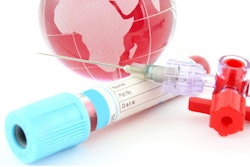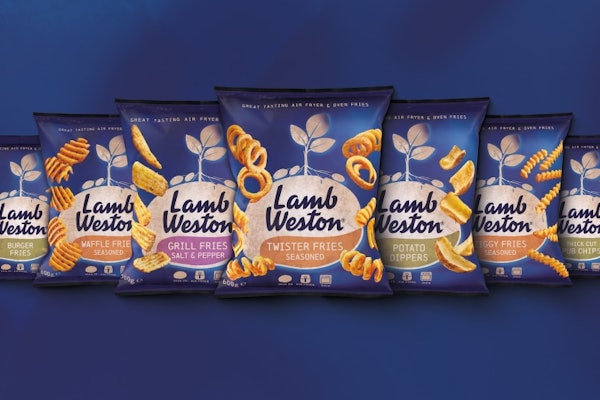Explains Ryan L’Abbe, vice president and general manager of Blue Mountain Plastics, Ice River’s new recycling facility in Shelburne, ON, “A culture of sustainability has been bred into the company,” by Jamie and Sandy Gott, company president and executive vice president respectively, and their son, James Gott, Ice River project manager. “They believe that you need to give back to nature what you take from nature.” Coupled with their desire to preserve the environment is the Gott’s belief that sustainability strategies can also bring about significant cost benefits.
L’Abbe says that Ice River has always looked at its packaging for more sustainable options. Its first initiative was to reduce the weight of its 500-mL bottle from 18 to 10 g. The company’s journey to a closed-loop recycling system began in 2008, when it started introducing recycled PET into its bottles, using flake sourced from an independent company. Through this process, Ice River found that the inconsistent size of the rPET flake made it difficult to injection-mold a bottle containing more than 50% recycled content. In addition, the company found it was unable to purchase a sufficient quantity of the material from its supplier, as there was limited capacity.
The alternative was to purchase rPET pellets instead, which feed much more consistently through the feedscrew of an injection molder. The problem? Adding pellet providers, located far from Ontario, to the supply chain would mean additional transportation costs. “We wanted to make it as transportation-efficient as possible,” says L’Abbe.
Because of these challenges, “as well as the realization that there was a substantial amount of PET recyclables produced in Ontario that were currently being shipped offshore, we determined that the only way to reach our goal of producing a 100% recycled bottle was to do the recycling ourselves (and make it a pellet),” reads Ice River’s Greener Package Awards entry form.
In February 2010, Ice River began construction at its Shelburne recycling facility; in November of that year, the first bottle made from 100% rPET rolled off the line at the Feversham injection-molding and packaging facility. Currently Blue Mountain can process 84 million pounds of PET per year, or 3.8 billion water bottles, when operating seven days a week at full capacity. From this, the facility generates approximately 55 million pounds of PET flake annually, which is melted down and extruded into pellets. Based on the entire capacity of the recycling plant, Ice River says it can offset more than 75 million pounds of CO2 per year.
Ice River/Blue Mountain purchases up to 80% of Blue Box-recycled PET from Ontario municipalities, including PET thermoforms. “Prior to our existence, there was no major local purchaser of PET bottles that ended up in recycling bins,” says the entry form. “By approaching municipalities and being willing to pay good prices for this material on a regular basis, we encouraged them to promote better collection.”
Ice River’s next project? To produce and print its own shrink film from recycled material for its bottled water multipacks, which are now packaged without corrugated trays. As with bottle recycling, “it’s collection that is going to be the key,” says L’Abbe. Current barriers include the lack of film being collected and the inconsistent quality of the different types of polyethylene film being produced. “We still have plans to do it,” says L’Abbe. With the right pressure by Ice River on film producers and on municipalities, it may just succeed.



























